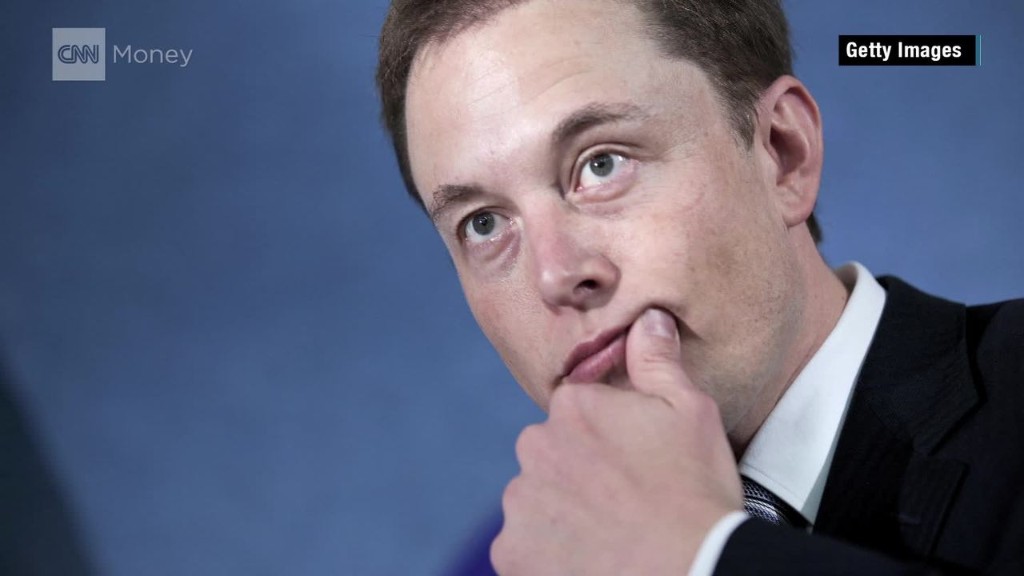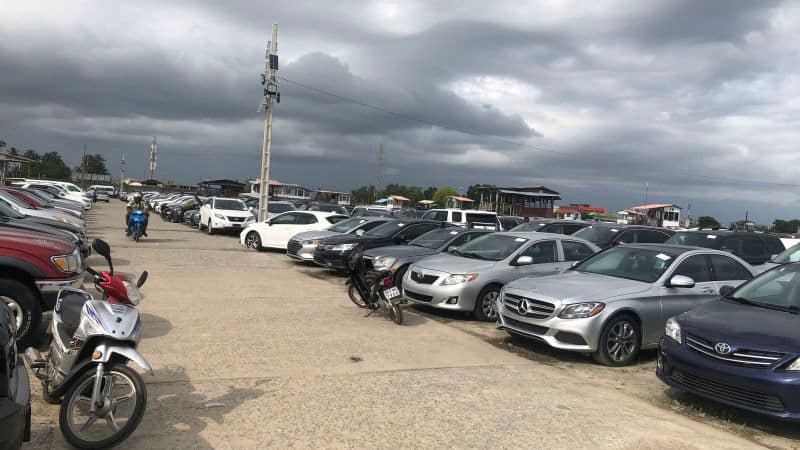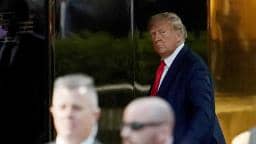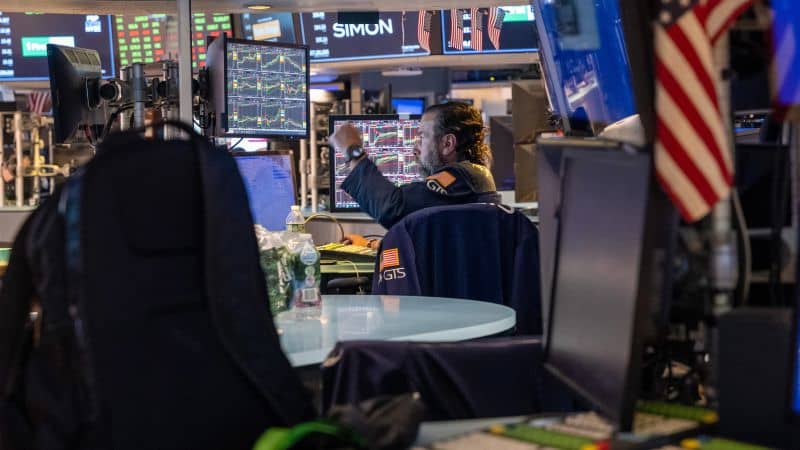Tesla is bringing its electric cars to the heart of the oil producing world. The automaker announced Monday that its first official venture in the Middle East will be in the United

Tesla is bringing its electric cars to the heart of the oil producing world.
The automaker announced Monday that its first official venture in the Middle East will be in the United Arab Emirates.
The first cars — the Model S and Model X — will hit the road this summer.
“Timing seems to be good to really make a significant debut in this region starting in Dubai,” Tesla (TSLA) CEO Elon Musk said at the World Government Summit in Dubai.
Tesla owners will have access to two existing supercharging stations in the UAE, and Telsa plans to open five more by the end of the year.
Despite sitting on huge oil and gas reserves, the UAE has ambitious plans to go green. Last month it said it will invest $163 billion to boost alternative energy use over the next three decades.
Related: Tesla reveals what it will charge for a charge
It’s the latest in a series of expansion announcements for Tesla. Last week, Musk hinted that Tesla may soon come to India.
Musk has also teased plans to build “heavy-duty trucks and high passenger-density urban transport” as well developing a ride-hailing network, which could be similar to Uber.
Speaking in Dubai, the entrepreneur expounded on the future of robotics.
“We will see autonomy and artificial intelligence advance tremendously,” Musk said. “In probably 10 years, it will be very unusual for cars to be built that are not fully autonomous.”
Related: Elon Musk’s surprising secret weapon: Trump?
But he also warned of the “disruptive” nature of autonomous vehicles.
“That disruption I’m talking about will take place over about 20 years. Still, 20 years is a short period of time to have something like 12% to 15% of the workforce be unemployed.”
Musk said governments must pay close attention to artificial intelligence, create sustainable transport and be wary of mass unemployment.
“This will be a massive social challenge. Ultimately, we need to think about universal basic income. I don’t think we have a choice,” he said. “There will be fewer and fewer jobs that a robot cannot do better.”
— Seth Fiegerman contributed reporting.
CNNMoney (Dubai) First published February 13, 2017: 11:06 AM ET
Don't Miss
Cotonou, Benin CNN — Standing on the stony ground in the bustling Fifa Park car lot, Rokeeb Yaya is haggling
Story highlights Astronauts can temporarily gain 2 inches in height but suffer muscle loss and back pain More countermeasures involving
New York CNN Business — In a surprise reversal, Qatar announced a ban of alcoholic beer at the eight stadiums
New York
CNN Business
—
In a surprise reversal, Qatar announced a ban of alcoholic beer at the eight stadiums hosting the World Cup. That leaves fans with just one “beer” choice — albeit one that isn’t boozy.
Soccer fans will still be able to purchase Bud Zero, an alcohol-free lager that Anheuser-Busch says tastes similar to its best-selling alcoholic beverage.
One serving of Bud Zero has 0 grams of sugar and 50 calories. The beer, which is Bud’s first ever zero alcohol beer, launched in the United States two years ago, targeting a growing trend of people choosing non-alcoholic beers.
Non-alcoholic alternatives to booze have been around for a while, but the sector has been booming lately. The non-alcoholic trend started to pick up a year or two before the pandemic and has continued to grow at a rapid clip. Demand for non-alcoholic alternatives has been largely driven by younger consumers.
Qatar is a Muslim country that is considered to be very conservative, and tightly regulates alcohol sales and usage. In September, officials said ticketed fans would be able to buy alcoholic beer three hours before kickoff and for one hour after the final whistle, but not during the match.
“Following discussions between host country authorities and FIFA, a decision has been made to focus the sale of alcoholic beverages on the FIFA Fan Festival, other fan destinations and licensed venues, removing sales points of beer from Qatar’s FIFA World Cup 2022 stadium perimeter,” said FIFA, soccer’s governing body, in a statement Friday.

FIFA noted that the decision will have “no impact” on sales of Bud Zero.
Budweiser tweeted, “Well, this is awkward,” though the social media post was quickly deleted.
“As partners of FIFA for over three decades, we look forward to our activations of FIFA World Cup campaigns around the world to celebrate football with our consumers,” an Anheuser-Busch InBev spokesperson said in a statement. “Some of the planned stadium activations cannot move forward due to circumstances beyond our control.”
It is indeed slightly awkward for AB InBev, which is a major sponsor of the World Cup, and was planning to selling regular Bud. Just a few days ago, reports showed World Cup workers moving beer tents into less visible areas of stadiums.
AB InBev paid $75 million for the sponsorship, according to multiple reports. So, the decision throws a bit of a wrench into their marketing plans since the decision dramatically reduces its presence for thousands of fans at the World Cup. However, arguably the bigger part — its TV advertisements with football royalty Lionel Messi and Neymar Jr. — won’t be affected.
“Qatar’s decision to ban all alcohol around the grounds for the upcoming FIFA World Cup just days before it begins presents an illusion that FIFA is not in control of its own tournament and risks alienating Budweiser—a key sponsor and long-term partner of the governing body,” said Conrad Wiacek, head of sport analysis at GlobalData, in an email.
The decision could have ramifications for the future, Wiacek said, noting that Budweiser’s partnership with the World Cup expires after this year’s event.
“However, Budweiser will be cautious to burn its bridges with the governing body, as the 2026 US tournament will be highly prized. Going elsewhere would open up opportunity for other alcohol brands in its wake,” he said.
The FIFA World Cup Qatar 2022 kicks off Sunday and lasts until December 18.
Don't Miss
What to know about the Trump indictment on the eve of his court appearance Source link
A “Help Wanted” sign is seen at a Golden Krust location on June 7 in the Flatbush neighborhood of Brooklyn
You may have never heard of PFAS, but you likely have these potentially dangerous chemicals inside your body. CNN’s Dr.










